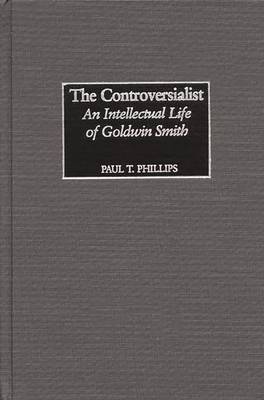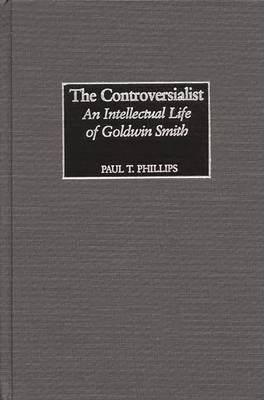
- Retrait gratuit dans votre magasin Club
- 7.000.000 titres dans notre catalogue
- Payer en toute sécurité
- Toujours un magasin près de chez vous
- Retrait gratuit dans votre magasin Club
- 7.000.0000 titres dans notre catalogue
- Payer en toute sécurité
- Toujours un magasin près de chez vous
Description
Goldwin Smith (1823-1910) was a celebrated, transatlantic writer on current events, politics, religion, history, and literature. While he made his academic mark teaching at Oxford, Cornell, and later as a resident guru at Toronto, his facile pen earned him a far greater reputation with general readers throughout the English-speaking world. Determined to rouse concern over issues that he deemed to be important to the advancement of humanity, Smith was deemed the controversialist by the Dictionary of National Biography. A study of his life and his writings provides new insight into liberalism, anti-semitism, the role of the journalist, and other aspects of life in late 19th century North America and Britain.
As a public intellectual, Goldwin Smith spoke out on a variety of issues, frequently provoking intense debate. Phillips argues that the core of Smith's thought and the driving force behind his role as a controversialist lay in his moral philosophy, which provided a sense of direction to Smith's many and sometimes disparate writings and activities. This study will also probe the serious dilemma posed by Smith's path to agnosticism in the last decades of his life. By moving to a position of virtual unbelief, Smith risked damage not only to his carefully-crafted public persona, but also to a life's work as an impassioned moralist.Spécifications
Parties prenantes
- Auteur(s) :
- Editeur:
Contenu
- Nombre de pages :
- 216
- Langue:
- Anglais
Caractéristiques
- EAN:
- 9780275976118
- Date de parution :
- 28-02-02
- Format:
- Livre relié
- Format numérique:
- Genaaid
- Dimensions :
- 152 mm x 229 mm
- Poids :
- 489 g

Les avis
Nous publions uniquement les avis qui respectent les conditions requises. Consultez nos conditions pour les avis.






